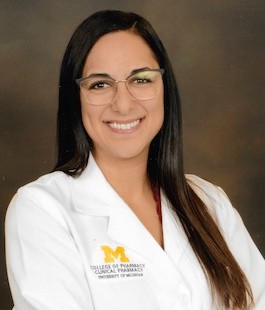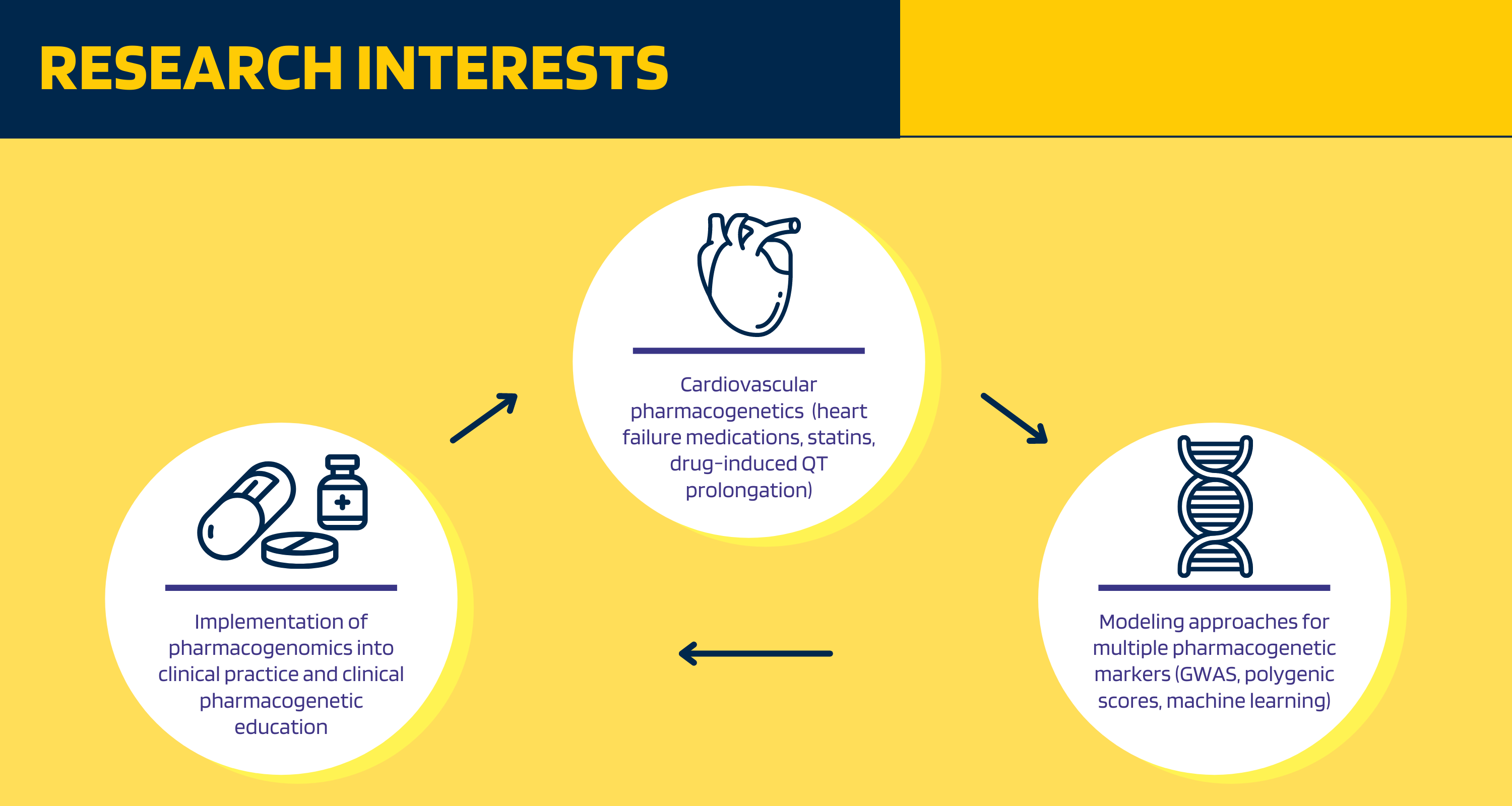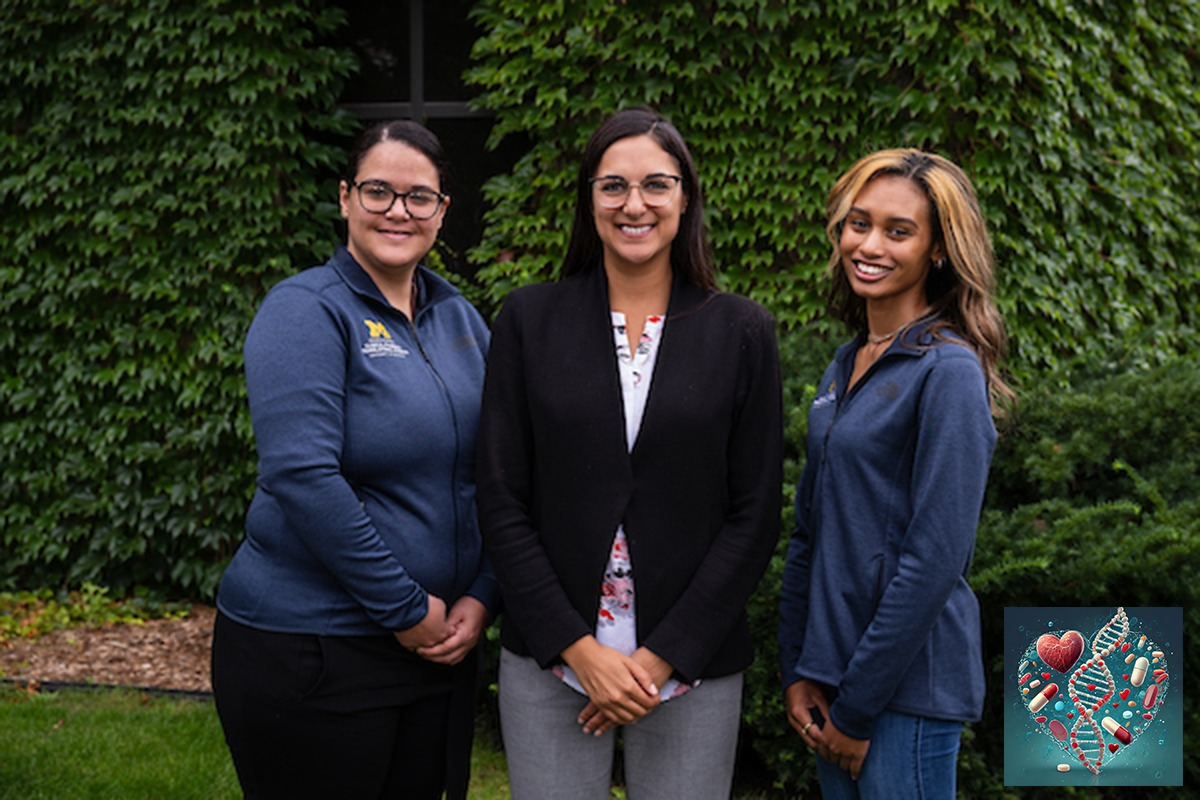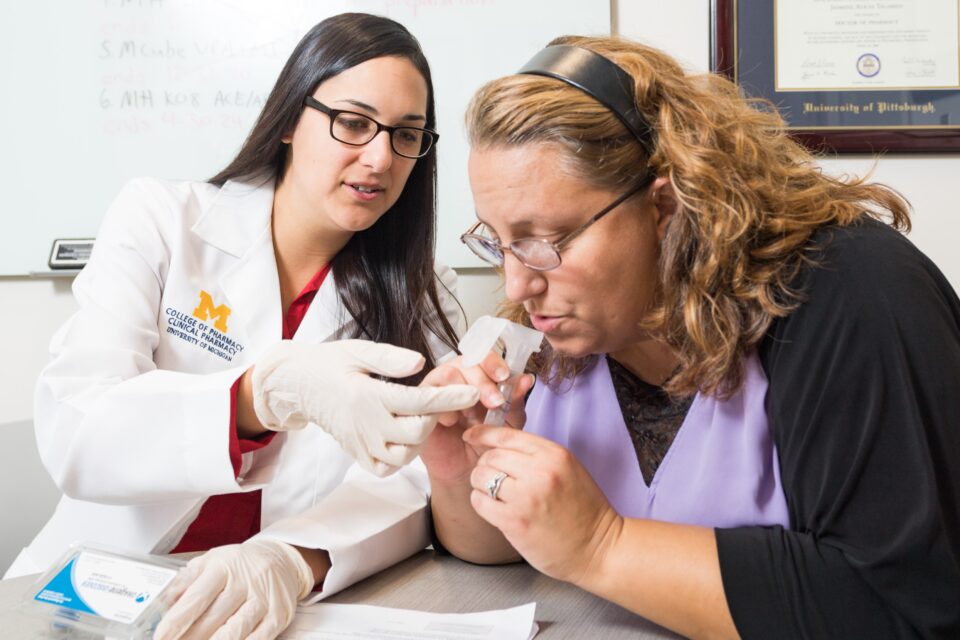LABORATORY
Luzum Laboratory

Jasmine Luzum, PharmD, PhD, BCPS, FHFSA, FAHA
The goal of Dr. Jasmine Luzum’s (formerly Talameh) research is to improve medication outcomes and disparities. She uses a variety of clinical & translational research approaches, with an emphasis on pharmacogenomics. Her research has been funded by the most prestigious sponsors, published in top journals, and presented at major conferences.
Dr. Luzum joined the faculty at the University of Michigan in July 2016. She received her PharmD summa cum laude from the University of Pittsburgh in 2008 and her PhD in Pharmaceutical Sciences from the University of North Carolina at Chapel Hill Eshelman School of Pharmacy in 2013. She completed a Post-Doctoral Fellowship at the Ohio State University College of Medicine and Center for Pharmacogenomics in 2016. She became a Board-Certified Pharmacotherapy Specialist by the Board of Pharmacy Specialties and an Applied Pharmacologist by the American Board of Clinical Pharmacology in 2015.

Lab and Research Overview
Welcome to the Luzum Lab! We are passionate about making medications work better for everyone and ensuring that all patients have access to the best treatments through precision medicine.
Our main goal is to create and apply personalized treatment plans that suit individual needs for various health conditions. Our research covers everything from exciting new discoveries in the lab to applying these findings in real-world medical settings.
We look at clinical and genetic factors to see how they affect the way treatments work and their side effects. By examining past patient data, we gather important information that helps us design new and improved treatment options tailored to each person.
These new treatment tools are then carefully tested in clinical trials to prove that they can make treatments more effective and reduce side effects. By bringing precision medicine into everyday healthcare, we aim to provide personalized treatment plans that work best for each patient, helping to eliminate health disparities and improve overall healthcare quality.
Join us in our mission to transform how medications are used and to enhance patient care through cutting-edge research and precision medicine.
Areas in Which We Are Working
Pharmacogenetics of Heart Failure With Reduced Ejection Fraction
Approximately 3 million Americans suffer from heart failure with reduced ejection fraction (HFrEF). Several drug classes have been shown to be effective, on average, in the treatment of heart failure with reduced ejection fraction (e.g., beta-blockers, ACE inhibitors, angiotensin receptor blockers, etc.), but the individual patient responses to those drugs are highly variable and unpredictable. The goal of this research is to identify genetic variants that can predict responses to medications used for heart failure with reduced ejection fraction.
Pharmacogenetics of Drug-Induced QT Prolongation
Prolongation of the QT interval in the heart rhythm measured in an electrocardiogram (ECG or EKG) is an adverse effect of over 40 commonly prescribed medications in the U.S.. QT prolongation can lead to severe abnormal heart rhythms, fainting (other with serious injuries), or sudden death. This adverse effect is still unpredictable. We are working to discover clinical & genetic predictors of this serious adverse drug effect.
Pharmacogenetics of Statins
One-in-four Americans aged 40 and older take a statin medication to lower cholesterol. However each individual responds to statin therapy differently, with respect to both cholesterol-lowering and side effects. The goal of this research is to discover genetic variants and drug-drug interactions that can be used to prevent statin ineffectiveness or side effects.
Clinical implementation of pharmacogenetics
Pharmacogenetic testing has the potential to prevent adverse drug effects and drug ineffectiveness. However the clinical implementation of pharmacogenetic testing has been hindered by numerous barriers. The goal of this area of research is to understand the barriers hindering the clinical implementation of pharmacogenetics and to develop real-world solutions for overcoming those barriers.
Precision Medicine for Myocardial Infarction
Approximately every 40 seconds, an American will have a myocardial infarction, or “heart attack”. We are studying the re-purposing of drugs used for other diseases (e.g., seizure medications) for the treatment of MI because they have additional, epigenetic mechanisms in the heart.
Our research projects are constantly evolving. Please contact the Luzum Lab for updated information on current projects.
Lab Members
Shana Littleton, PhD Student
Jessica Orizu, PharmD Student
Wesley Wright, PharmD Student
Vy Lam, PharmD Student
Noel Yiadom, PharmD Student
Christina Pippis, PharmD Student
Ahmed Aalibraheem, PharmD Student
Lauren Aragones, UM Undergraduate Student
Isabella Volkers, UM Undergraduate Student
Amisha Kalmat, High School Student
Jawad Ghacham, PharmD Student
Bayan Azizi, PharmD, PhD Student

Teaching & Resources

